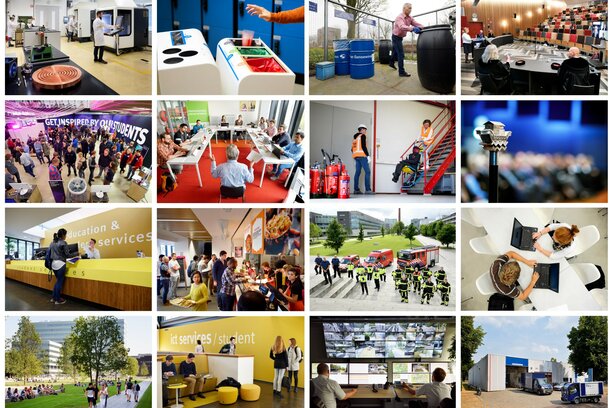Heartfelt commitment to building ������ý's future
The SQUAD evaluation is designed to make our education and research support fit for the future.
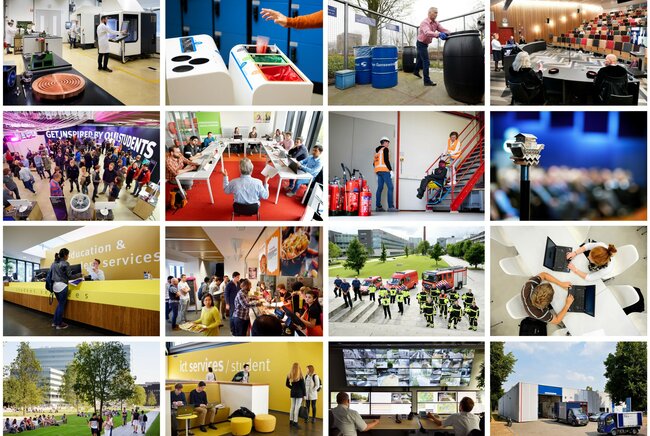
No more self-organizing silos; more efficient service provision achieved through more cooperation, more dialogue. All geared towards creating greater capacity to serve education and research, and to further strengthening the bonds between the services and between service providers and recipients. This is the motivation driving the SQUAD operation, which will run within ������ý’s eleven support services over the next two years.
It should really be nothing out of the ordinary, a recurrent self-evaluation held by a university's support services, believes SQUAD program manager Pieter Binsbergen. “The quality of education and research is assessed very six years, why is the support operation exempt? It's good to reflect on whether you are doing the right things, in the right way, and why you are doing what you are doing. Perhaps you'll even discover that you are performing rather well.”
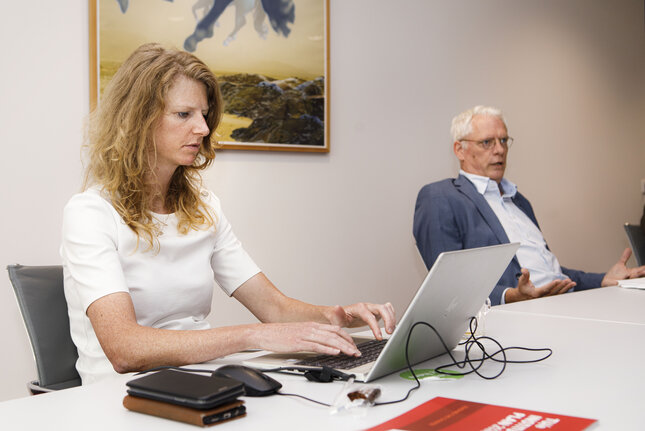
The key question that the eleven ������ý services - and their counterparts in the departments - must ask themselves during SQUAD is ‘how can we best prepare ourselves for the coming five years?’ Binsbergen knows from experience - he has been in charge of similar processes at Radboud University - that providing the solutions falls outside his remit. “Solutions need to come from the service providers themselves. We'll get them thinking, together, about how their service can be made fit for the future.”
Joint decisions
Service quality is another main area SQUAD will get people looking at together. “I think this connection between what the departments need and what the services deliver must be very tight. Deciding jointly how things should be done, that's our nirvana,” says Johan Lukkien, Dean of the Department of Mathematics & Computer Science and a SQUAD steering group member. “The service delivered must be so good that it means less work not more for our departmental staff. If we bear this in mind, we'll all benefit.”
Different wishes
Lukkien is well aware that the ������ý community, comprising nine different departments each with its own wishes, is not always an easy community to serve. And, similarly, that maintaining relations with eleven different services is no easy task for the departments. “It is important that services share a mutual understanding and that they understand what a department needs. That the user's perspective is adopted more often.”
Board secretary Marieke Willems, a member of the SQUAD program team, stresses the joint interest. “We need to feel jointly responsible, jointly pleased with our service provision relating to education and research. There is some friction and dissatisfaction, which causes people to retreat into their own service or department. We need to get back on good working terms. After all, there is one thing we have in common: our heartfelt commitment to ������ý.”
Customer satisfaction
“All the service providers in a support discipline go through a number of phases together, and they discuss with one another and with end-users how things are going and how they can be done better. This is the program's strength,” says Willems. Every SQUAD project round features a customer satisfaction survey. “This isn't standard practice at ������ý, not for the services, whereas there is much to be gained from regularly taking a close look at your organization.”
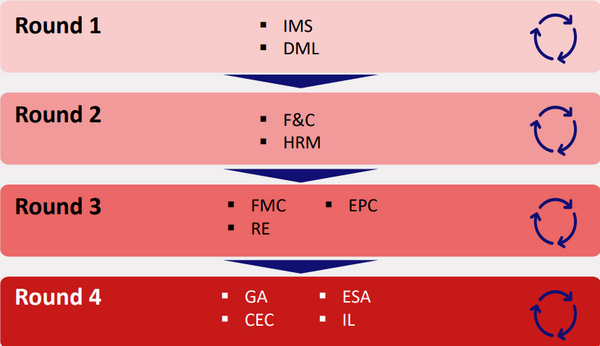
SQUAD status update
stands for Support Quality Drive and comprises four rounds, during which combinations of support disciplines evaluate themselves and produce change plans. The project also involves a customer satisfaction survey.
Shortly before the summer vacation, the first two services started their cycle, which will take a little over six months. These are Information Management and Services (IMS) and Data Management and Library (DML). The decision to avoid all the support disciplines working on SQUAD at once ensures the university can continue to run smoothly. “This is a very useful exercise but it takes time and energy. So we are working with the support disciplines in phases. Besides, each new round will be an opportunity to learn and will be able to apply what we learn in the next round,” says program manager Binsbergen.
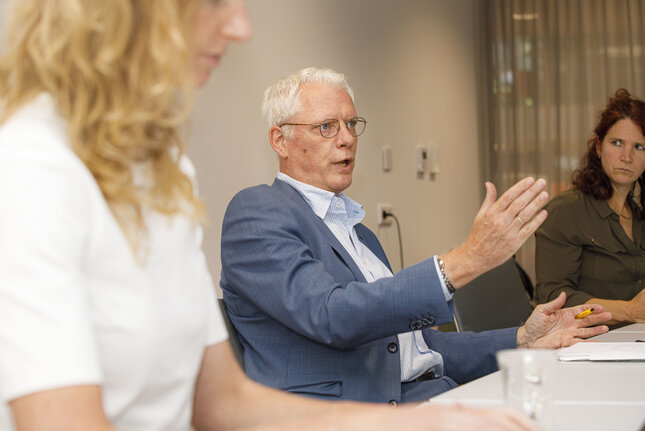
No reorganization
SQUAD is going to create change, that much is certain. Binsbergen is keen to stress that there are no plans for a reorganization. “If that were the case, we wouldn't be spending the next two-and-a-half years in discussion. We want to have good, substantive conversations in order to see how we can make our services future-proof.” A budget increase is out of the question. “So together we have to make other choices. It may be that services or parts of services merge or that there's a move towards centralization or decentralization, but this does not necessarily mean that people will have to leave.”
Willems emphasizes that ������ý's ratio of support staff to academics is among the lowest at Dutch universities. “About 35 percent of our staff works in support. We are already working very 'lean'. This is all about having our colleagues share a sense of responsibility for working to increase the satisfaction of both provider and recipient with the services relating to education and research. This is about quality and having better lines of communication. Our SQUAD cycle is designed to achieve precisely this,” she says.
Having held discussions with many colleagues at the university, Binsbergen is convinced that people know perfectly well that there is room for improvement. “The vast majority know that some things are not running as smoothly as they could, but they are no longer able to come up with joint solutions. So it's good that we're taking a fresh look at this!
'Please take things off our plates entirely'
Dean Johan Lukkien hopes that ultimately the SQUAD process will relieve the burden of work for the departments. “Take, for example, educational support. Right now, of course, we are occupied with the issue of how to teach courses in a corona-proof way. It would be very welcome if the services could relieve us entirely of the organizational aspects, and I do mean entirely. No half measures or leaving some bits and bobs undone, because then lecturers still have to get involved.”
“Ideally, I'd like to see an improvement in the relationship between support staff and academic staff. More respect and mutual understanding, people talking with each other. If these remain two separate worlds, there will still be tension in the air,” says Binsbergen. He has a tip for all support staff, “Seize your chance when it's the turn of your support discipline. Get involved. This process can only succeed if you yourself believe in the importance of working in a future-proof way.”
More on our strategy
![[Translate to English:] Foto: Bart van Overbeeke Bewerking: Grefo](https://assets.w3.tue.nl/w/fileadmin/_processed_/f/7/csm_hoofdbeeld_def_c49a59b323.jpg)


